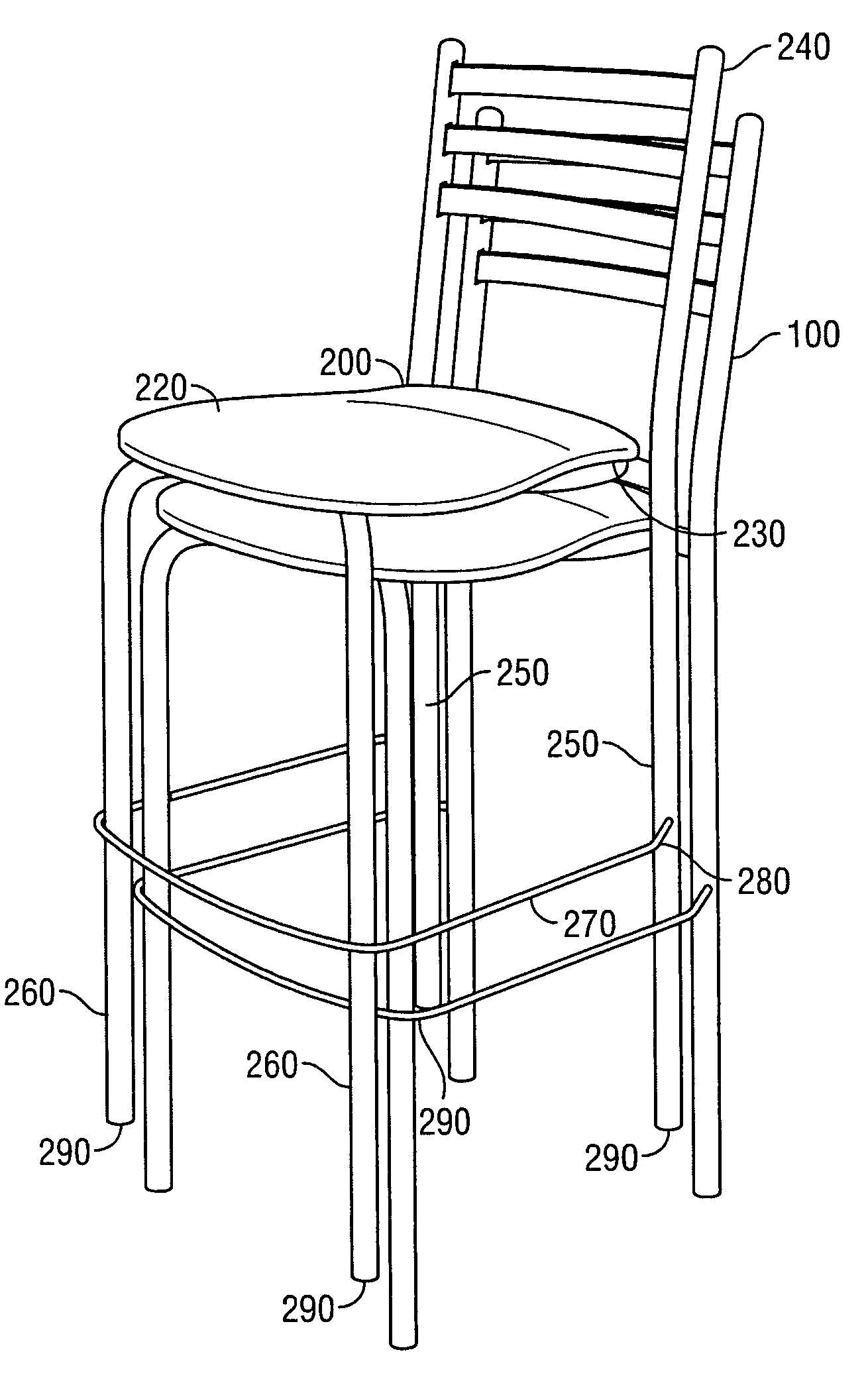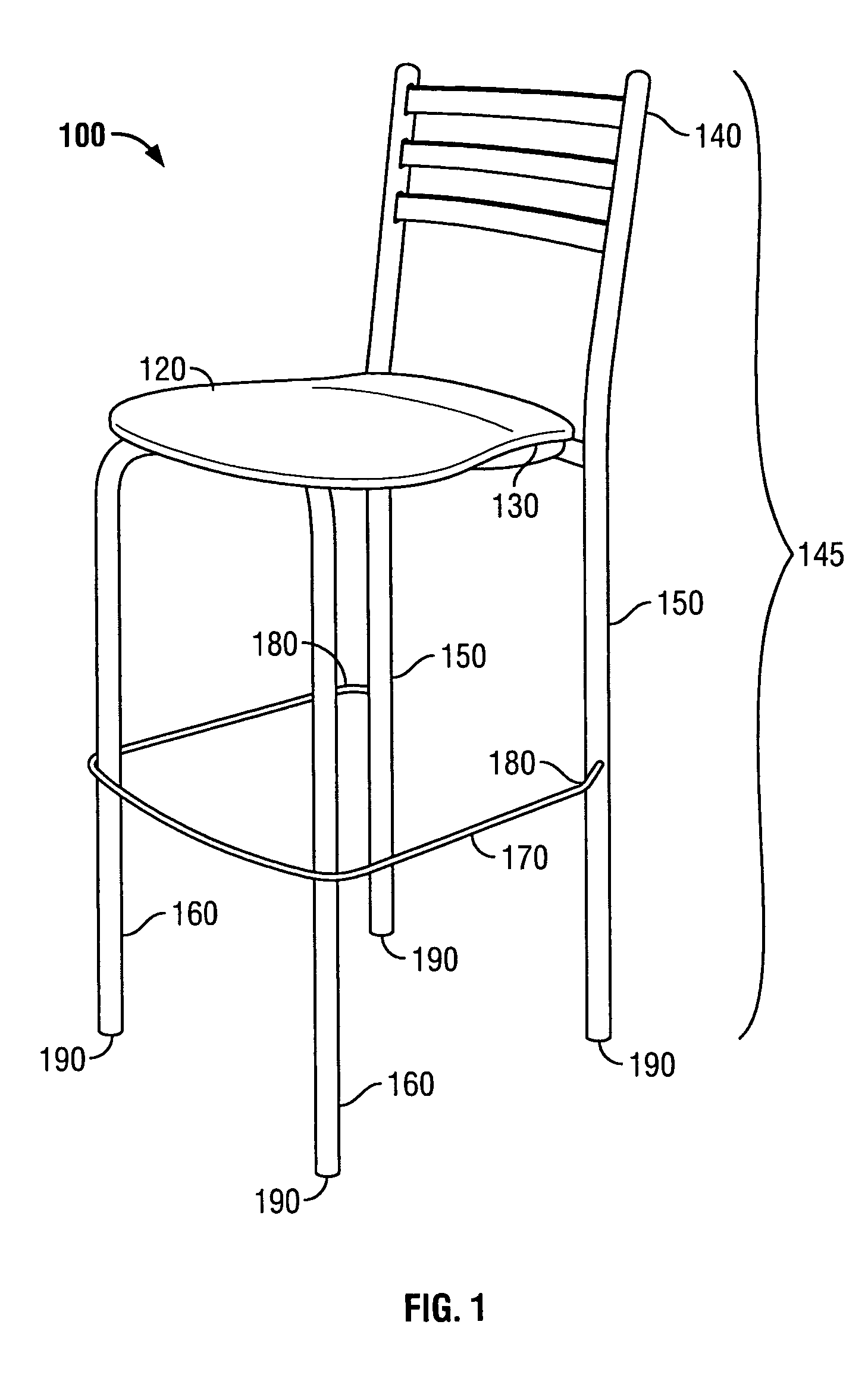Securely stacking bar stools
a bar stools and secure technology, applied in the field of barstools, can solve the problems of unsafe and unsanitary stacking, damage to the bar stools or surrounding equipment, and the bar stools may pose a hazard to children or other passersby,
- Summary
- Abstract
- Description
- Claims
- Application Information
AI Technical Summary
Benefits of technology
Problems solved by technology
Method used
Image
Examples
Embodiment Construction
[0031]FIG. 1 illustrates a securely stacking bar stool 100 in accordance with an embodiment of the present invention. The securely stacking bar stool 100 includes a seat 120, a forward motion restraining system 130, a backrest 140, rear legs 150, front legs 160, a footrest 170, a leg bracing system 180, and feet 190.
[0032]The rear legs 150 and front legs 160 connect to the seat 120. The feet 190 include bottom surfaces of the rear legs 150 and front legs 160. The forward motion restraining system 130 includes a cut-out in the seat 120. The backrest 140 is connected to the rear legs 150. The footrest 170 is connected to the rear legs 150 and front legs 160. The footrest 170 includes the leg bracing system 180.
[0033]In operation, the securely stacking bar stool 100 may be securely stacked with one or more similar bar stools. For example, as further described below, a pair of bar stools may be stacked securely because an upper bar stool is secured to a lower bar stool through the use o...
PUM
 Login to View More
Login to View More Abstract
Description
Claims
Application Information
 Login to View More
Login to View More - R&D
- Intellectual Property
- Life Sciences
- Materials
- Tech Scout
- Unparalleled Data Quality
- Higher Quality Content
- 60% Fewer Hallucinations
Browse by: Latest US Patents, China's latest patents, Technical Efficacy Thesaurus, Application Domain, Technology Topic, Popular Technical Reports.
© 2025 PatSnap. All rights reserved.Legal|Privacy policy|Modern Slavery Act Transparency Statement|Sitemap|About US| Contact US: help@patsnap.com



